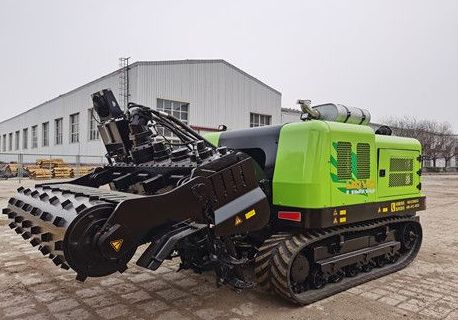Differences Between a Cultivator and a Tiller
Differences Between a Cultivator and a Tiller
Understand the distinctions between cultivators and tillers in gardening. Learn their uses, benefits, and which one suits your needs. Read more. Gardening equipment plays a crucial role in maintaining and preparing soil for planting. Two common tools used for this purpose are cultivators and tillers. While they might seem similar at first glance, there are significant differences between the two. In this article, we'll delve into the nuances of cultivators and tillers, highlighting their purposes, functions, and the scenarios where each excels.
Understanding Cultivators
A cultivator is a versatile gardening tool designed to loosen soil, remove weeds, and prepare it for planting. It typically features multiple tines or blades that work the soil on the surface. Cultivators are generally used for maintaining existing garden beds, mixing soil amendments, and removing weeds without disrupting the soil structure. They come in various sizes, from handheld versions to larger motorized models. Cultivators are ideal for tasks like breaking up crusty soil, incorporating compost, and creating furrows for planting seeds. Their lightweight and maneuverable nature make them suitable for smaller garden spaces or tight spots where a larger tool might not be practical.
Exploring Tillers
A tiller, on the other hand, is a more powerful tool designed to deeply turn and break up compacted soil. It typically comes equipped with large, rotating blades or tines that penetrate the soil to a greater depth. Tillers are especially useful when you're starting a new garden plot or reviving an overgrown area. They effectively churn the soil, creating a loose and well-aerated foundation for planting. Tillers are available in various types, including front-tine and rear-tine models. Front-tine tillers are generally easier to maneuver and are suitable for smaller spaces, while rear-tine tillers provide more digging power and are better suited for larger areas or tougher soil conditions.
Differences at a Glance
When considering the differences between cultivators and tillers, keep the following points in mind:
Cultivator:Surface-level soil work Weed removal and mixing soil amendments Suitable for existing garden beds Lightweight and easy to maneuver Ideal for smaller garden spaces
Tiller:Deep soil penetration and breaking up compacted soil Suitable for new garden plots and overgrown areas Provides well-aerated soil foundation Various types for different garden sizes and soil conditions
Choosing the Right Tool
The choice between a cultivator and a tiller depends on your gardening goals. If you need to maintain existing beds, mix soil, and handle light weeding, a cultivator is the appropriate choice. On the other hand, if you're preparing a new garden area, dealing with tough soil, or need deeper soil turnover, a tiller is the better option.
Common Questions About Cultivators and Tillers
Q: Can I use a tiller for weeding?
A: While a tiller can remove weeds by churning the soil, it's not the most efficient tool for light weeding tasks. A cultivator is better suited for this purpose.
Q: Are cultivators and tillers interchangeable?
A: They serve different purposes, so they're not interchangeable. Cultivators are designed for surface-level work, while tillers are meant for deep soil penetration.
Q: Can I use a cultivator to prepare a new garden area?
A: Cultivators are more suited for maintaining existing beds and mixing soil. For new garden plots, a tiller is recommended to thoroughly break up the soil. In conclusion, understanding the difference between a cultivator and a tiller is crucial for successful gardening. By selecting the right tool based on your specific needs, you can ensure that your gardening efforts are efficient and yield fruitful results.




